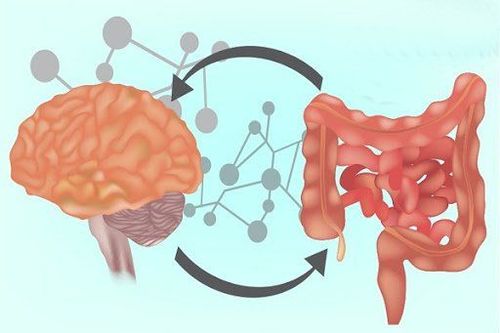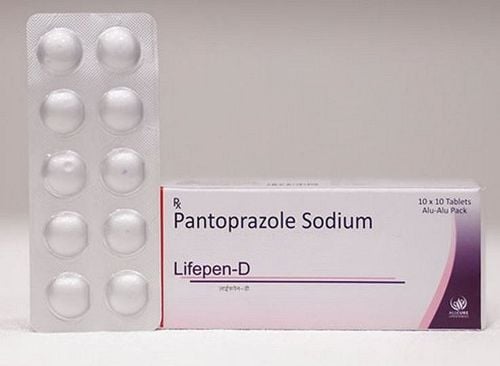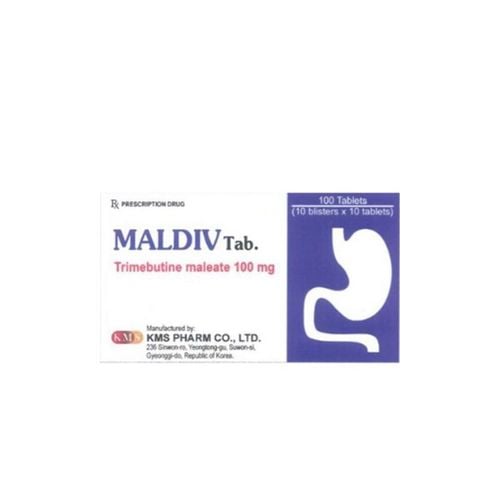This is an automatically translated article.
Irritable bowel syndrome and other intestinal problems make your gut nerves extremely sensitive and your brain processes signals from the gut in a different way. Knowing more about the disease will help you know how to take better care of your health.
1. The role of the gut-brain axis
The gut acts like a "second brain" of the body, consisting of a system of 200-600 million nerve cells scattered throughout the digestive system, called the enteric nervous system. ENS). They help control intestinal motility, mucosal surface metabolism, and intestinal hormone production.
Not only works independently, the enteric nervous system is also closely related to the central nervous system through the following pathways: Nervous system, hypothalamic-pituitary-adrenal axis and immune system . The relationship between the enteric nervous system and the central nervous system is bidirectional and is known as the enteric brain axis. Factors such as psychological changes or medical conditions can impair one of the many pathways of the gut-brain axis and cause dysfunction, for example situations such as:
Feelings of excitement, fear or uncomfortable enough to cause gastrointestinal symptoms, such as irritable bowel syndrome (IBS). Receiving information so bad that it makes you feel nauseous. If you have ever experienced the above symptoms, it means that you have felt the interplay of the gut-brain axis.
The brain-gut connection involves hormones that are released from different parts of the brain during stress or excitement. These hormones circulate in the blood, affecting the sensitivity and function of the nerves in the intestinal wall, leading to digestive disorders.
2. Research on the link between irritable bowel syndrome and the brain
Researchers are learning how activity inside the gut may affect the brain. One example is irritable bowel syndrome, a condition that occurs twice as often in women as in men.
For most patients with irritable bowel syndrome, the nerves in the intestines become extremely sensitive. In addition, the brain also processes signals from the gut differently than people without irritable bowel syndrome. Even mild bloating can cause pain, bloating, indigestion, constipation or diarrhea.
The impact of this disease on the patient's overall quality of life is considered the most serious complication. This effect makes the patient feel that his or her life is not complete, which eventually leads to depression and depression. This is the reason anxiety and depression disorders often appear in patients with functional disorders in the gastrointestinal tract, such as irritable bowel syndrome, constipation, indigestion, bloating, etc.
On the contrary, patients with nervous system disorders, such as anxiety disorders, depression, autism... often have problems related to the digestive system, such as loss of appetite, disorders. metabolism, gastrointestinal dysfunction and abnormalities in the intestinal flora.

Hội chứng ruột kích thích có liên quan đến não bộ con người
3. Bowel problems and patient mood
Research shows that gut problems can affect a patient's mood and feelings. For example, people with chronic constipation often experience feelings of depression or even headaches. This is explained by the mechanism of action of the brain-gut axis. Accordingly, constipation causes the enteric nervous system to send certain signals to the brain, leading to the activation of a range of different sensations.
The gut microbiota serves as an important component of the gut, potentially influencing brain function and unconscious behavior through the gut-brain axis connection. They synthesize tryptophan, which is a precursor to serotonin, a neurotransmitter associated with happy moods and feelings of happiness. Research shows that up to 90% of serotonin is produced in the gut.
When a person suffers from neurological disorders such as stress, depression, autism, etc., there will be an imbalance in the intestinal flora, leading to a decrease in both diversity and quantity. beneficial bacteria, especially Lactobacillus and Bifidobacterium. This is the premise for the idea of adding probiotics to improve the function of the brain-gut axis, applied in the treatment of anxiety disorders and depression.
Currently, the Department of Gastroenterology - Vinmec International General Hospital is highly appreciated with a team of famous doctors and nurses with good skills and expertise. Vinmec is also a pioneer for the latest treatment methods and technologies in Vietnam when the hospital has many modern diagnostic and surgical facilities to help the treatment and examination process achieve the highest results. . Therefore, when experiencing unusual health problems, customers can contact the hospital for examination and appropriate instructions from a specialist doctor.
Please dial HOTLINE for more information or register for an appointment HERE. Download MyVinmec app to make appointments faster and to manage your bookings easily.
References: hopkinsmedicine.org - .hopkinsmedicine.org













